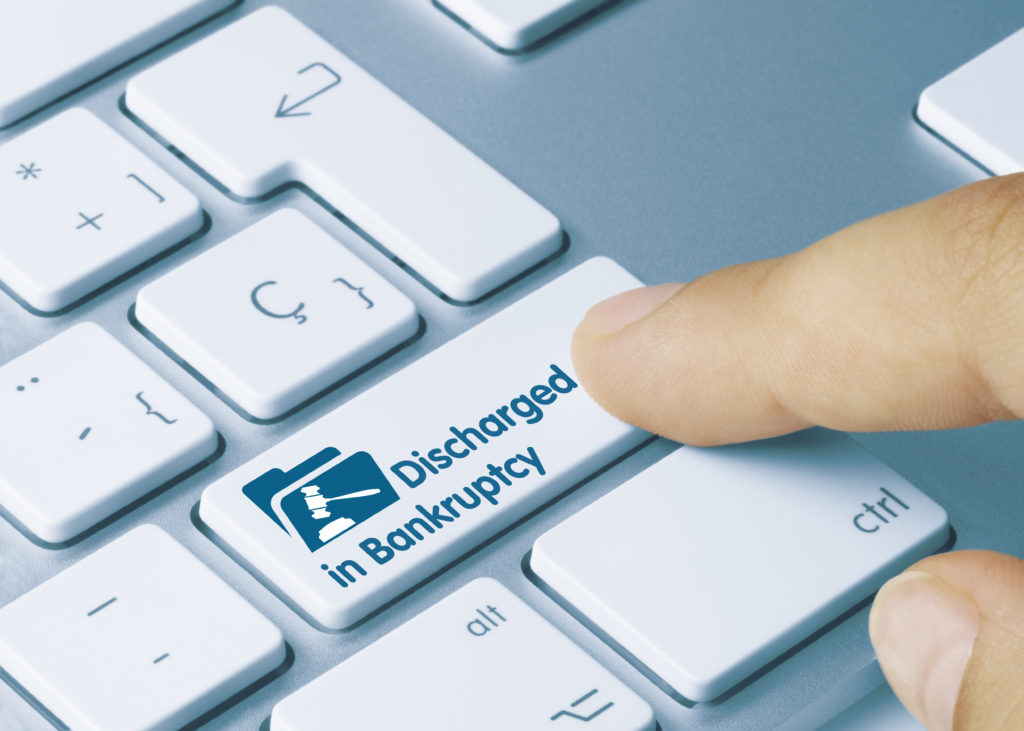The usual reason to file bankruptcy is to receive a “discharge” of one’s debts. In this article, I’ll explain what a bankruptcy discharge is, the types of debt usually discharged, debts that are not discharged, and the potential ways in which a debtor could lose the discharge.

The basics of a bankruptcy discharge
The bankruptcy discharge is an order by a Bankruptcy Court that relieves a debtor of liability of certain debts. The termination of liability means a debtor will not have to ever repay the debt. The Bankruptcy Code states a discharge
voids any judgment at any time obtained, to the extent that such judgment is a determination of the personal liability of the debtor…
11 U.S.C. Sec. 524(a)(1)
operates as an injunction against the commencement or continuation of an action…or an act, to collect, recover or offset any such debt as a personal liability of the debtor…
11 U.S.C. Sec. 524(a)(2)
Boiled down the discharge voids any judgments that a debtor has and prevents a creditor from trying to collect a debt. This is a powerful tool that allows a debtor a fresh start and the ability to move forward without the burden of creditors hounding for payment, lawsuits, garnishments, and potential loss of property.
Who is able to receive a discharge?
Individuals and married couples are able to receive a bankruptcy discharge in Chapter 7, Chapter 11, Chapter 12, and Chapter 13 bankruptcy cases.
Corporations, Partnerships, and other business entities are generally able to receive a discharge only in Chapter 11 Bankruptcy cases. Business entities will not receive a discharge if the plan approved by the Bankruptcy Court is a liquidation plan as opposed to a plan of reorganization.
A business entity will not receive a discharge if it files a Chapter 7 bankruptcy case because Chapter 7 is a form of liquidation.
What are the usual types of debt discharged in bankruptcy?
The usual types of debt discharged in bankruptcy include:
- Unsecured debts like credit cards, medical bills, and personal loans;
- Civil Judgments;
- Past due utility bills and rent;
- Debts incurred from most car accidents;
- Bank fees;
- Personally guaranteed business debts;
- Income taxes under certain circumstances.
What types of debt are not discharged in bankruptcy?
There are debts that are never discharged and debts that could be discharged depending on certain circumstances. It would be best to review with a Nebraska Bankruptcy Attorney what might not be discharged in a bankruptcy case. Ordinarily, the types of debt not discharged are:
- Domestic Support Obligations such as child support and alimony/spousal support;
- Debts incurred in the course of a divorce or separation or in connection with a separation agreement or divorce decree;
- Mortgages for real property that will not be surrendered;
- Personal Property loans, like vehicle loans, for property that will not be surrendered;
- Most tax obligations and income taxes if certain circumstances are not met;
- Criminal fines and penalties;
- Debts incurred because of a DUI injury or death;
- Debts arising from willful and malicious injury;
- Debts incurred by fraud;
- Debts that were not discharged from a prior bankruptcy case;
- Debts that were not listed in the bankruptcy case (under some situations);
- Student loan debt unless the debtor establishes “Undue Hardship”.
Can a Bankruptcy Discharge be denied?
Although it is rare, a Bankruptcy Discharge can be denied by the Bankruptcy Court. The following scenarios could put a debtor in having their discharged denied or revoked.
- Debtor transfers, removes, destroys, or otherwise conceals property within a year of the bankruptcy filing or after the bankruptcy filing;
- Debtor has concealed, destroyed, falsified, or failed to keep or preserve records which ascertain the debtor’s financial condition;
- Debtor makes a false oath, presented a false claim, withholds from a bankruptcy trustee any recorded information pertaining to the debtor’s property or financial affairs;
- Debtor fails to explain any loss or deficiency of assets;
- Debtor refuses to obey any lawful order of the Court;
- Debtor was previously granted a discharge under certain circumstances;
- Debtor failed to complete a personal finance course;
- Debtor acquires property that the bankruptcy estate is entitled to and debtor fails to report the acquisition or deliver the property to the trustee;
- Debtor fails to explain a material mistatement in an audit or fails to make available anything necessary for an audit.
As one can see there are many things that could cause a debtor to lose their discharge. Fortunately, these are rare and can be negated by hiring a competent bankruptcy attorney.
If you have questions about a bankruptcy discharge contact Caldwell Law. We help clients daily in receiving a bankruptcy discharge and wiping out debt without the fear of a denial of discharge.